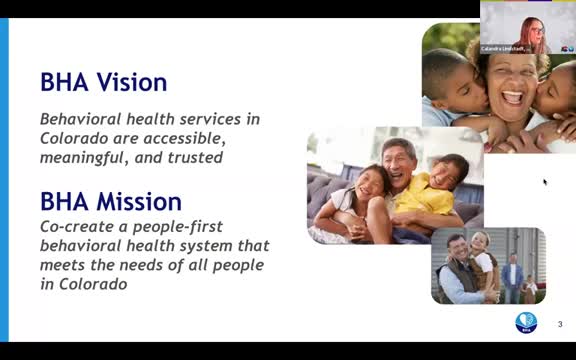Article not found
This article is no longer available. But don't worry—we've gathered other articles that discuss the same topic.

Local programs and events: Coffee Break expansion, Farm Bureau vouchers saved, CDA website and summit RFP

Working group forms committees and posts goal spreadsheet to organize Ag behavioral health work

State funds short-term clinician training tailored to agricultural communities, selects LandLogic model

State Behavioral Health Administration outlines roadmap, BASO launch and local engagement plan

